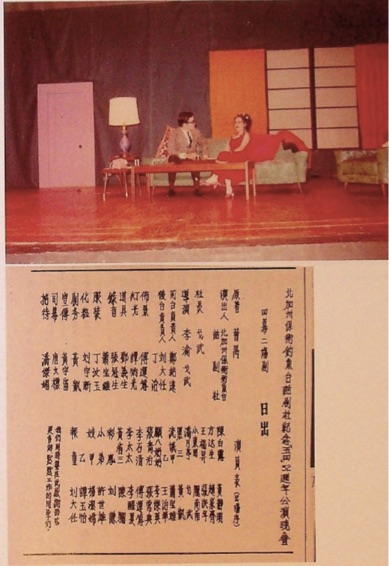China Research Seminar Series talk given by Dr Po-hsi Chen, University of Cambridge
In the early 1970s, Japan laid claim to Diaoyutai/Senkaku islands between Taiwan and Okinawa, which triggered the overseas Taiwanese students in the U.S to protest what they saw as the revival of Japanese imperialism. Whilst the Diaoyutai Movement was diplomatic and political in nature, what has often been overlooked is that it was also an art and literary movement. Although many activists went on to become established novelists, the most popular cultural activities amongst overseas students throughout the 1970s were the staging of 'spoken drama' (huaju), a theatrical form introduced to China in the early twentieth century. Drawing on some new findings in overseas Chinese newspapers and magazines, this presentation discusses how these student writers introduced and adapted modern Chinese spoken drama. How did they invoke the anti-imperialist spirit of the May Fourth and reimagine contemporary socialist China through spoken drama? How did student activists use theatre to mobilise other students? And how did these plays also witness the decline of the Diaoyutai campaign?
Po-hsi CHEN is Post-Doctoral Fellow in Taiwan Studies at the Faculty of Asian and Middle Eastern Studies, University of Cambridge, and Post-Doctoral Associate at Jesus College. He holds a Ph.D in East Asian Languages and Literatures from Yale University.
| Contact Contact |
|---|
| Contact Professor Adam Yuet Chau: ayc25@cam.ac.uk |

